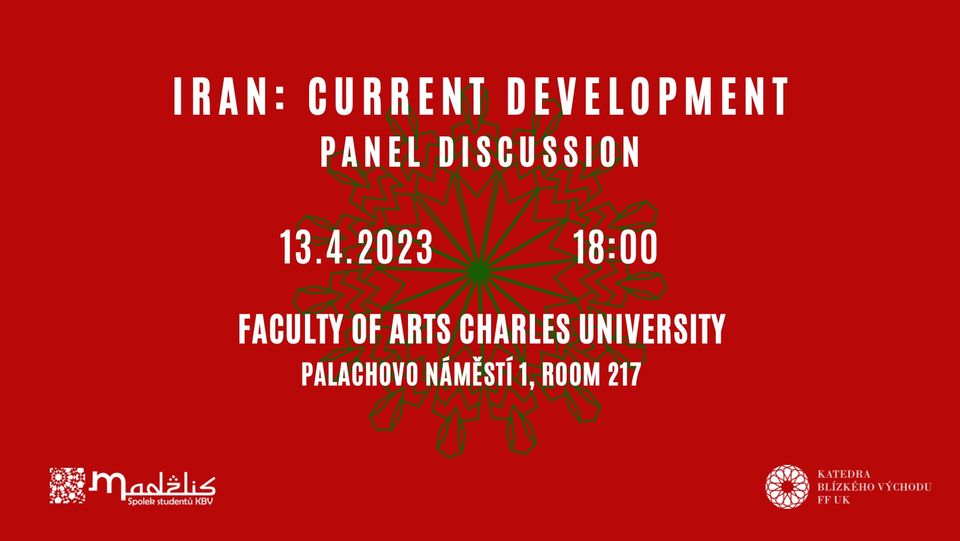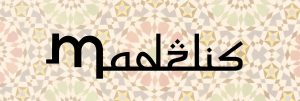The Department of Middle Eastern Studies of Charles University and Madžlis Student Association would like to cordially invite you to a panel discussion called ” Iran – Current Development”. Four speakers will take part in the panel, distinguished guest Dr Afshin Shahi among them. The panel will address Iran’s human rights issues by highlighting the country’s legal transgressions or its activities in the international arena. It will also suggest possible solutions.
TOPICS OF THE PANEL
- Human rights issues in Iran and the challenges faced by activists and civil society organizations
- Iran’s relations with the West, Russia, and China
- The impact of sanctions and international pressure on Iran’s domestic and foreign policies
- Role of the International Community in promoting and protecting human rights in Iran.
PRELIMINARY FORMAT:
- Introductory word by the Chair, Dr Zuzana Kříhová (18:00 – 18:05)
- 15-minute presentations by the speakers (18:05 – 19:30)
- Discussion (19:30 – 19:55)
- Concluding remarks (19:55 – 20:00)
ACTIVE PARTICIPANTS
Chair of the Panel: PhDr. Zuzana Kříhová, Ph.D.
Chair of the Panel: PhDr. Zuzana Kříhová, Ph.D.
Speakers:
Dr Afshin Shahi is Middle East Politics & International Relations Senior Lecturer at Keele University, UK. He is a renowned expert on Iran’s foreign policy and international relations. He has written extensively on the subject and has appeared on various media outlets to provide expert commentary on Iran’s regional and global role. His insights into Iran’s relations with the West, the Gulf states, China and Russia would be invaluable in understanding the complexities of Iran’s foreign policy.
Dr Afshin Shahi is Middle East Politics & International Relations Senior Lecturer at Keele University, UK. He is a renowned expert on Iran’s foreign policy and international relations. He has written extensively on the subject and has appeared on various media outlets to provide expert commentary on Iran’s regional and global role. His insights into Iran’s relations with the West, the Gulf states, China and Russia would be invaluable in understanding the complexities of Iran’s foreign policy.
Pegah Moulana, the Secretary General of Youth and Environment Europe and Aryan Monfarednik, an Iranian student activist and student at Charles University, will discuss the human rights situation in Iran and provide insights into the domestic situation in Iran as well as the state of current protest activities. Aryan will share his experiences as a student activist in Iran and provide an on-the-ground perspective on the current political and social climate in the country
Matouš Horčička, PhD. Student, Department of the Middle Eastern Studies, Faculty of Arts, Charles University, will discuss the role of the Iranian Constitution as a legal pillar of the authoritarian regime in Iran. The Iranian Constitution has been the basis for the legal framework in Iran since its adoption in 1979, however, the Constitution has been criticized for serving as a tool to legitimize the authoritarian regime, suppress dissent and the activities of opposition groups as well as the rights of the people to express themselves freely.





